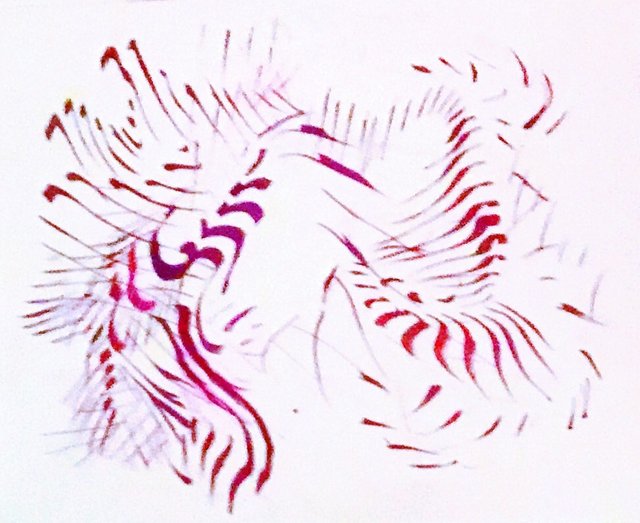Notes on the process, part 1: overcoming artist block

If one is unwilling to fail, one will never succeed. Much as in a game of chess, the one who plays too conservatively, never taking a risk has at best the hope of a well- played tie. Breaking even is better than a loss, some would say, but I believe an inventively played loss would have been better. To try a new strategy, find its weak points and learn from it, is far better than the reliance on the tried and true, which gives no movement. Failure, the fear of failure and the overcoming of that fear are all part of the creative process. The wall of terror one confronts when facing a new project can be daunting and some prefer to procrastinate rather than face it. However, to find a way over, under or around it, is a feat. Making that first mark is sometimes seen as but a drop in an ocean, one of little significance and one that is often obliterated later. However, this first step is a momentous one and I would say equivalent to at least 1/3 of the work. For in this first step others can be built. With this first step you are saying “I don’t Care. I don’t care if I fail, I don’t care if I succeed, I am simply going to begin, I am not afraid. Advance! Advance!”
So how does one make this first brave step onto the battlefield?
First, tell yourself there is no battlefield, no grand struggle, no uphill battles, but simply a field, a field that you are going to investigate, do some exploration and report back. Begin with the most simple of tasks. Something that needs to be done but you’ve been procrastinating in doing: getting inspired by a work from one of the Masters of your craft, doing some research, formatting a document or preparing a canvas. It never has to be momentous or grand, don’t look at the big picture and think about all the steps or remember past challenges, getting caught up in the 10,000 things. Just focus on one thing, the simplest thing, the most mundane of all the tasks and then get it done. Take a break, or not, but then look to the next smallest thing and do that. I find getting up in the morning and getting straight to work, before the brain is even firing on all cylinders is the best practice (after some coffee of course). Before that brilliant mind can argue itself out of working, finding reasons to put the job off or worse never begin, you are already in the midst of the project. Give yourself easy hours, whatever is manageable, don’t get on a roll and work all day and night. As the prolific Ernest Hemingway said, it is better to take a regular amount from the well each day than to drain it dry and wait for it to fill back up. He would write each day, in the morning, and always stop before completely finishing, leaving an easy starting point for the next day. The Master Cezanne would often paint all day then wipe it down, and start from the obliterated shapes the next day, he had no pretense that he was making a masterpiece from the start, but rather explored the field, mowing it down and starting from the remains the next day, it was a process. This is an important point to remember for we often get caught up thinking of the end product and feel overwhelmed by it, thinking everything must be done at once, but it is a process, one small step at a time. Never look more than a step or two ahead, focus on the immediate moment and what has to be done right now, not what eventually needs to get done in the end. Maintaining that immediacy keeps the project manageable.
Congratulations @nothingsacred! You have completed the following achievement on the Steem blockchain and have been rewarded with new badge(s) :
Click here to view your Board
If you no longer want to receive notifications, reply to this comment with the word
STOP